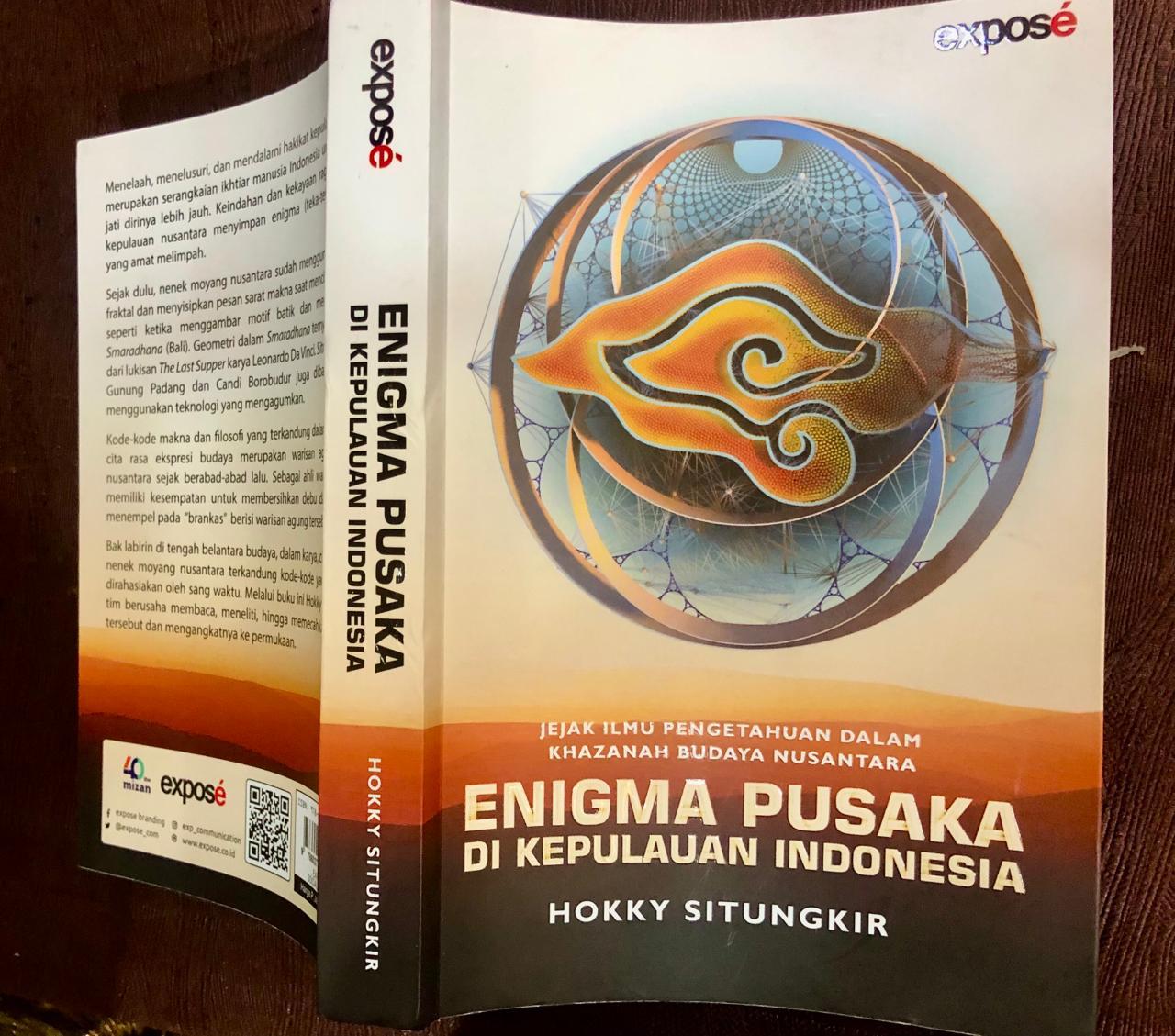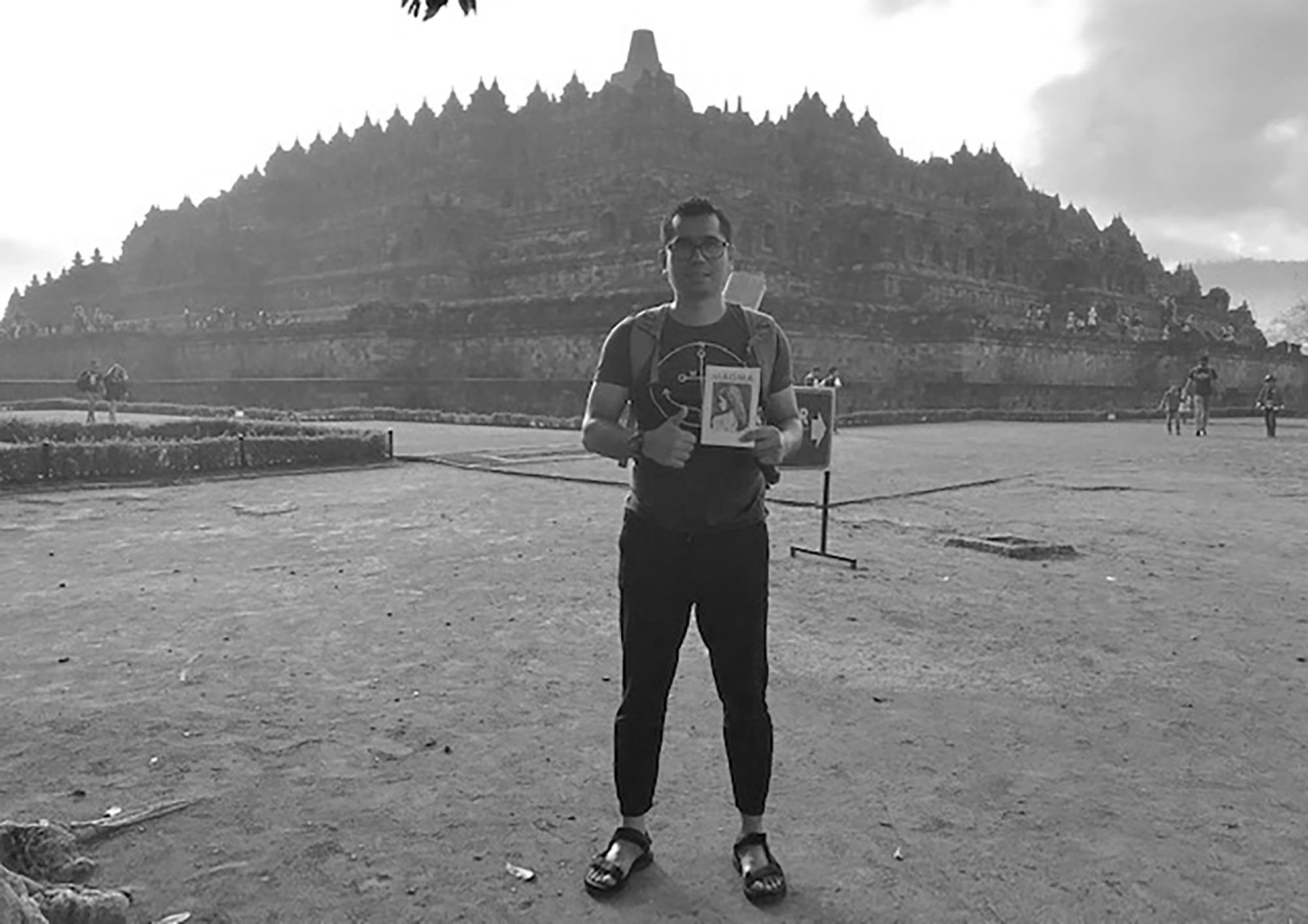Exploring Archipelago Intellectual Property: Books Review |

Exploring Archipelago Intellectual Property
By @ayijufridar
Book Data:
Title: The Enigma of Heritage in the Archipelago
Author: Hokky Situngkir
Publisher: Expose
Print I : September, 2023
Thickness: xv + 306 pages
ISBN: 978-602-7829-76-3
Acehnese traditional farmers have their own calendar for working on rice fields and various other types of crops. The ancient calendar is called keuneunong, a term that is increasingly foreign to the ears of the younger generation, even those born into farming families.
This keuneunong regulates the farmer's schedule for plowing the field, sowing seeds, planting rice, cleaning weeds (mumpoe), until harvest time arrives. Not only rice, cultivation of other agricultural crops in the dry season is also regulated using the keuneunong calendar.
The calendar is compiled based on weather forecasts, wind direction, seasons and the circulation of the sun. Academically, this keuneunong has a complete and detailed mathematical formula. From the arts and culture aspect, traditions that have been going on since the time of Sultan Iskandar Muda (1607 – 1636 AD), are described in the Aceh saga which is full of aesthetics.
The keuneunong tradition is not found in the book Enigma Heritage in the Archipelago by Hokky Situngkir. However, the book explores traces of knowledge in the cultural treasures of the archipelago which are similar to the agricultural calendar of the Acehnese people in ancient times, for example the "primbon" of the Javanese people who started planting rice after seeing Lintang Waluku or the Seven Angels or Orien in modern terms (p.16) .
Several other tribal traditions also have their own calendars for starting stages of social activities, agriculture, and even worship rituals. These terms and traditions have different names, but similarities are found in the pattern of determining schedules based on natural changes such as the moon, sun, stars and weather.
This fact hammers our awareness that science had developed rapidly before there was a modern education system as we know it today, apart from reminding us that the people of the archipelago, which we now know as the Indonesian entity, had similar traditions and culture long before awareness of nationality was born.
In the Nusantara Module program implemented by the Ministry of Education, Culture, Research and Technology, students also discovered the fact that several community traditions, children's games which have educational elements, and food, have similarities even though they have different names. This fact strengthens the national ties among students so that the program, which has entered its fourth wave, should be continued even if there are political changes in Indonesia in the future.
Some of these traditions are still preserved today, but quite a few have become extinct over time.
The development of Indonesian knowledge that is close to nature cannot only be found in social, economic and religious activities. Even in arts and culture activities, you can find a lot of resilience in the creativity of traditional communities by exploring the riches of nature and the environment. The closeness to nature gave birth to many ideas which were expressed in various works, such as batik patterns in Javanese society and other tribes in the archipelago (p. 73).
The scientific journey of Indonesian citizens touches various aspects of life, including biology, health, architecture, music and culinary. Long before incubators were known today, the people of Aceh used warm water which they placed on the left and right sides of premature babies because they did not yet have fat tissue to regulate body temperature properly. In processing color, people in Java and other areas in the archipelago use natural dyes from plants and soil. This tradition is still preserved today when the idea of returning to nature is increasingly emerging.

Borobudur's Temple.
In the health and culinary fields, this is also the case. Traditional communities already have knowledge of medicines that they get from nature. It is not important what the scientific terms are about these medicinal plants and how they work completely, what is important is that they can reduce and cure disease. Technological developments and years of research can then explain the chemical content of certain plants, their health benefits, and the impact of their use. Then these drugs are mass produced, have names, and as a result can no longer be obtained for free because they have become part of the trading system.
The traditional houses of the Indonesian people also symbolize extensive knowledge not only regarding the world of architecture, but also social and cultural matters. Some houses are built without using nails, with beautiful structures, while being safe from natural disasters and wild animal disturbances. It is interesting to examine why the building is still standing after hundreds of years even though natural disasters such as earthquakes come and go.
The knowledge of the archipelago, some of which has been eroded in the gazette of the times, apart from the onslaught of foreign culture, is often accused of contributing to the eradication of this wealth. Profit-oriented natural exploration eliminates the value of wisdom in the use of knowledge for human welfare. Ironically, government policies that resemble a commercial approach accelerate the disappearance of Indonesian knowledge and culture - instead of saving it through combining it with knowledge in the digital era.
The book Enigma Heritage in the Archipelago should be included in the scientific and historical reference category. The involvement of writers Kurnia Effendi et al makes this book feel light for all groups. Some parts are not discussed in depth so readers who want to understand them more broadly and completely must look for them from the sources used as references in this book. Finally, no matter how small the contribution, this book can be part of efforts to save the archipelago's cultural wealth which must be followed up in various aspects of life.[]

Ayi Jufridar
Writer and book lover.
@tipu curate
Upvoted 👌 (Mana: 48/58) Liquid rewards.
Thank you very much @magicmonk and @tipu.